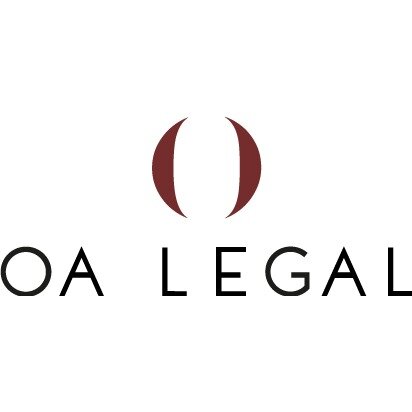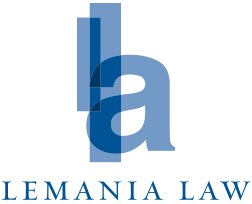Best Restructuring & Insolvency Lawyers in Geneva
Share your needs with us, get contacted by law firms.
Free. Takes 2 min.
List of the best lawyers in Geneva, Switzerland
About Restructuring & Insolvency Law in Geneva, Switzerland
Restructuring and insolvency law in Geneva, Switzerland, is designed to help both businesses and individuals who are facing financial difficulties or are unable to meet their debt obligations. The process can involve the reorganization of a financially distressed business in order to allow it to continue operating, or the orderly liquidation of assets if recovery is not possible. Swiss law aims to balance the interests of debtors (those who owe money) and creditors (those who are owed money), ensuring a fair legal framework for all parties involved. Geneva, as a major financial center in Switzerland, has a robust legal and regulatory environment to address these scenarios efficiently.
Why You May Need a Lawyer
There are several common situations when legal help in restructuring and insolvency may be necessary in Geneva:
- If your business is unable to pay its debts as they fall due
- If you or your business receive demands for payment or threats of legal action from creditors
- If you need to negotiate with creditors to restructure your obligations
- If you are concerned about directors' liability in the event of insolvency
- If you wish to explore voluntary liquidation or bankruptcy proceedings
- If creditors are attempting to seize assets or claim secured collateral
- If you need to understand your rights and duties under Swiss insolvency law
In all these situations, a lawyer experienced in restructuring and insolvency can provide invaluable advice. They can assess your options, help you understand the risks, and ensure that you navigate the legal requirements correctly to achieve the best possible outcome.
Local Laws Overview
Swiss insolvency law is primarily governed by the Swiss Federal Act on Debt Enforcement and Bankruptcy (DEBA), which outlines the processes for debt enforcement, bankruptcy, and restructuring. Geneva, as a canton, applies federal rules alongside some local procedures specific to its courts and administrative offices.
Key aspects of the local laws include:
- Types of Proceedings: Swiss law provides for several types of insolvency and restructuring proceedings, such as composition proceedings (Concordat, or composition agreement), bankruptcy, and debt enforcement. Each type has its own procedural requirements and consequences for debtors and creditors.
- Director Liability: Company directors have duties to file for bankruptcy if the company becomes insolvent. Failing to do so can result in personal liability.
- Stay of Proceedings: When formal insolvency or restructuring proceedings are initiated, there is often a temporary stay on creditors taking action, allowing time to assess the options.
- Creditor Committees: In some cases, committees of creditors will be involved in negotiations, particularly in large or complex restructurings.
- Cross-Border Aspects: Geneva's role as an international business center means that cross-border insolvency issues regularly arise and are addressed within the Swiss legal framework, taking into consideration international treaties and EU regulations where applicable.
Legal advice is vital to navigate these local laws, which can be intricate and have strict timelines and procedural steps.
Frequently Asked Questions
What is the difference between restructuring and insolvency?
Restructuring refers to attempts to reorganize a company or individual’s debts and operations to restore financial health, while insolvency describes the situation where someone is unable to pay their debts as they fall due. Restructuring may prevent insolvency, but if it is not successful, insolvency proceedings may follow.
When is a business considered insolvent under Swiss law?
A business is considered insolvent if it can no longer meet its debt obligations as they become due or its liabilities exceed its assets. Company directors are required to act promptly if insolvency is suspected.
What happens if I do nothing and my business is insolvent?
Failing to act can worsen your situation. Directors must act in the best interests of creditors if insolvency is likely. Ignoring the issue can lead to personal liability and even criminal charges in cases of fraudulent behavior.
Can creditors take my personal assets if my company goes bankrupt?
Generally, company creditors can only claim company assets. However, if you provided personal guarantees or were found to have breached your director duties, your personal assets could be at risk.
What is a composition agreement (Concordat) in Switzerland?
A composition agreement allows a debtor to negotiate with its creditors to either reduce the amount owed or to extend the repayment period. If approved by the court and creditors, it can provide an alternative to bankruptcy.
How long do insolvency or bankruptcy proceedings take in Geneva?
The duration can vary widely based on the complexity of the case and the type of proceedings. Simple bankruptcy procedures may conclude within several months, while complex restructurings can take years.
Can I start insolvency proceedings voluntarily?
Yes, debtors can initiate proceedings themselves if they realize they are unable to meet their obligations. In fact, directors have a legal duty to do so under certain circumstances.
Are foreign creditors treated differently in Geneva?
Foreign creditors have similar rights as Swiss creditors in most cases. However, cross-border insolvency cases can involve additional legal coordination and recognition procedures.
Will bankruptcy erase all my debts?
Bankruptcy typically results in the liquidation of available assets to pay creditors. Some debts may remain after the process, and certain types of obligations, like taxes or alimony, may not be discharged.
When should I contact a lawyer about restructuring or insolvency?
It is best to seek legal advice as soon as financial difficulties arise. Early intervention allows more options, such as restructuring or negotiation with creditors, and may prevent formal insolvency.
Additional Resources
For further information and assistance related to restructuring and insolvency in Geneva, consider the following resources:
- Debt Enforcement Offices (Office des poursuites): These government bodies handle enforcement and bankruptcy processes within the canton.
- Geneva Court of First Instance (Tribunal de première instance): The court responsible for insolvency and bankruptcy proceedings in Geneva.
- Swiss Bar Association (Fédération Suisse des Avocats): Provides listings of qualified lawyers specializing in insolvency and restructuring.
- Swiss Federal Department of Justice and Police: Offers information about debt enforcement and bankruptcy laws throughout Switzerland.
- Local chambers of commerce: Can provide support and resources for businesses in distress.
Next Steps
If you are facing financial difficulties or believe that restructuring or insolvency proceedings might be necessary, here are practical steps to take:
- Gather all financial documents and details of your debts, assets, and current cash flow.
- Assess your current financial situation honestly and identify any urgent deadlines or creditor actions.
- Contact a qualified lawyer in Geneva who specializes in restructuring and insolvency. A legal expert can review your circumstances, explain your rights and obligations, and help you develop a strategic plan.
- Be transparent and proactive with creditors if negotiations or settlements are possible. Legal advice can help guide these communications.
- Follow all legal procedures and comply with deadlines to protect yourself from further legal risk or liability.
Taking timely legal advice can make a significant difference in the outcome of restructuring and insolvency issues. Do not delay seeking help if you are facing financial distress.
Lawzana helps you find the best lawyers and law firms in Geneva through a curated and pre-screened list of qualified legal professionals. Our platform offers rankings and detailed profiles of attorneys and law firms, allowing you to compare based on practice areas, including Restructuring & Insolvency, experience, and client feedback.
Each profile includes a description of the firm's areas of practice, client reviews, team members and partners, year of establishment, spoken languages, office locations, contact information, social media presence, and any published articles or resources. Most firms on our platform speak English and are experienced in both local and international legal matters.
Get a quote from top-rated law firms in Geneva, Switzerland — quickly, securely, and without unnecessary hassle.
Disclaimer:
The information provided on this page is for general informational purposes only and does not constitute legal advice. While we strive to ensure the accuracy and relevance of the content, legal information may change over time, and interpretations of the law can vary. You should always consult with a qualified legal professional for advice specific to your situation.
We disclaim all liability for actions taken or not taken based on the content of this page. If you believe any information is incorrect or outdated, please contact us, and we will review and update it where appropriate.

















